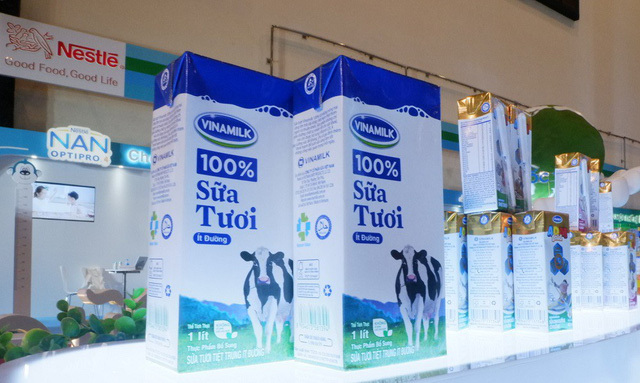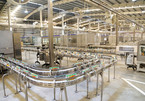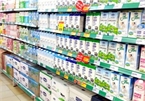In 2010-2018, the industry gained an average growth rate of 12.7 percent per annum, the highest growth rate among the sectors of the livestock industry.

Vietnam’s dairy products are exported to 43 markets, including choosy ones such as the US, France, Canada, Poland, the Middle East and Southeast Asia, with value of $250-300 million a year in the last three years.
Domestic dairy producers have been scaling up their production and business over the last two years, despite the warning that the industry would be under pressure in the context of CPTPP.
|
Vietnam’s dairy products are exported to 43 markets, including choosy ones such as the US, France, Canada, Poland, the Middle East and Southeast Asia, with value of $250-300 million a year in the last three years. |
The Ministry of Agriculture and Rural Development (MARD) of Vietnam and the General Administration of Customs of China last April signed a protocol, considered a legal framework for Vietnam’s dairy producers to export products to China.
The representatives of the two sides are discussing procedures on code granting and veterinary quarantine form to implement the protocol.
Vietnam plans to invite Chinese officials to visit and examine the operation at Vietnam’s dairy factories before exporting the first consignments of products.
Tran Quang Trung, chair of the Vietnam Milk Association, revealed that the first consignments of products may go to China this October.
Trung is optimistic about the 1.4 billion consumer market. In fact, Vietnam’s dairy products have been exported to China, but through unofficial channels, to explore the market.
Vietnam’s enterprises realized that Chinese consumers like Vietnamese products, especially yoghurt. Meanwhile, the geographical position saves transportation cost.
Trung believes exporting dairy products to China is feasible.
Vinamilk now exports its products to 50 markets. Besides the factories in Vietnam, it has begun making products at factories in Cambodia and Laos, with products mostly sold in ASEAN markets, especially Thailand.
Meanwhile, Nutifood exports products to the Philippines. It has recently negotiated with US partners on exporting formula milk products for children.
Nutifood, together with billionaire Erick Paulsson who contributes 25 percent of capital, and the Swedish cow cooperative Skånemejerier Ekonomisk Förening, which also contributes 25 percent of capital, is building a factory in Sweden. The products from the factory, bearing Nutifood, would be available in the European market.
Trung affirmed that CPTPP will pose a big challenge for Vietnam’s dairy industry, because dairy products from New Zealand, Singapore and Japan will bear the zero percent tariff.
However, he believes that Vietnam’s dairy producers will still prosper. Foreign powder milk products of Abbott, Mead Johnson and Nestle target high-income earners.
Meanwhile, foreign yoghurt will not be competitive because of problems in preservation and transportation.
Thanh Lich

Vietnam's dairy producers vow to make bigger investments
It is expected that the average dairy product demand of Vietnamese will increase to 28 liters per annum by 2020.

Vietnam’s dairy industry to boost exports
Vietnam’s dairy makers are accessing more opportunities to increase exports, but companies need to enhance their competitiveness in foreign markets and develop a concentrated production scale.
 Vietnam-made dairy products, which have certain advantages in the home market, continue to be prosperous.
Vietnam-made dairy products, which have certain advantages in the home market, continue to be prosperous.